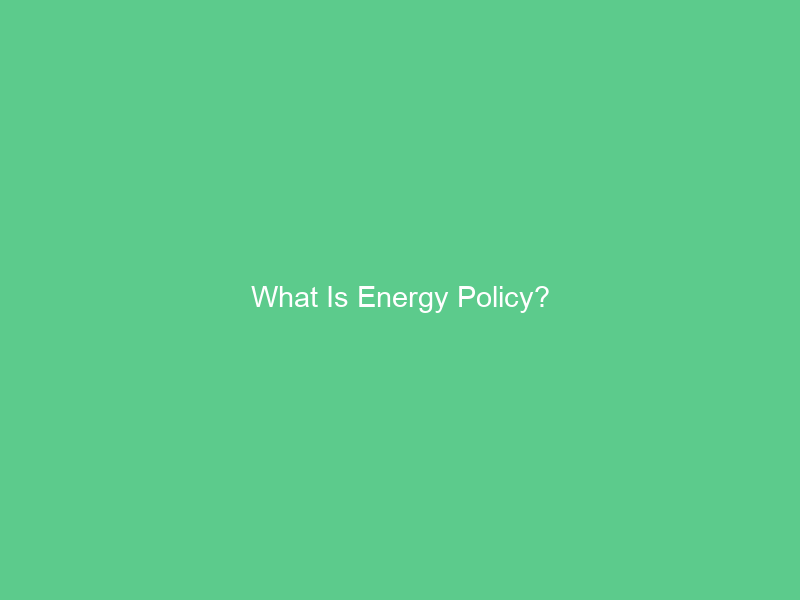Energy policy refers to a set of strategies and measures intended to guide energy production, consumption and conservation with the ultimate aim of supporting sustainable development on an inhabitable planet.
Access to abundant, affordable, safe, and environmentally-friendly energy is essential to society’s flourishing. However, energy decisions often have unintended side effects that negatively affect both individuals’ lives and the environment.
Electrification
Electrification is an integral component of the Net Zero Emissions (NZE) pathway and involves switching out fossil-fueled technologies for electric ones like electric vehicles and heat pumps, thereby lowering energy demand, greenhouse gas emissions, and improving air quality.
Nations are actively driving this change with various policy instruments, such as carbon taxes that make fossil fuel use more costly and investments in renewable electricity infrastructure. They also invest in smart grid technology to balance variable wind power supply and improve reliability as well as encouraging industrial electrification by providing incentives and grants for low-emission equipment.
Electricization is anticipated to expand quickly in transportation, data centers, and industrial processes due to rising consumer demand for efficient electric appliances and an intention to cut emissions from greenhouse gases. To ensure this growth can meet increasing demands from cleaner energy sources with sufficient capacity.
Energy efficiency
Energy efficiency is a policy issue focused on conserving finite resources. Its complex values must be unpacked; however, an overly techno-economic focus tends to overlook social and environmental implications of energy efficiency policies.
From the 1980s onwards, EU energy efficiency policy documents have included an emphasis on economic considerations. This can be seen through market barriers and failures which must be overcome; furthermore costs and competition become prominent factors to take into account as solutions.
The narrative surrounding secure and low-cost energy often aligns with ideals of progress and development; this may mask important concerns regarding limits to production and consumption as well as quantitative uncertainty that often go unsaid behind closed doors. Therefore, politics should be seen as an intricate process that involves multiple perspectives being heard together in order to find common ground (Stone 2012:66). Energy efficiency should not be seen as any different.
Renewable energy
Renewable energy generation is one of the most promising strategies for mitigating greenhouse gas emissions globally. Many governments have instituted policies designed to promote renewables such as feed-in tariffs that require utilities to pay above-market rates for renewable electricity brought into their grids.
Others policies support renewables by setting targets for their use, such as building energy codes and fuel economy standards. Many cities and states are making efforts toward getting 70 percent or more of their electricity from renewable sources by 2050; corporations are following suit.
Development of an energy policy is integral to any organization, as it communicates top management’s commitment and establishes organizational priorities on this matter. An approved and communicated energy policy also serves as the framework for specific initiatives like creating an energy team or installing advanced lighting systems; then using this policy as its source to measure progress reports back.
Nuclear power
Energy policies involve decisions regarding how we produce and consume energy, with decisions typically informed by legislation, international treaties, financial incentives, guidelines for energy conservation and economic modelling being used as bases. Energy policies can also encompass decisions related to climate policies which determine how much a country’s energy sector contributes towards global greenhouse gas emissions.
Countries implement energy policies tailored to their national interests, including decarbonization, system reliability, resource diversification, technology export potential, cost and electricity access. Sometimes these national interests align with international agreements which strive to reach common goals.
Citizens can engage in the energy policy process by supporting industry associations that represent their concerns. Many of these organisations host events where citizens can provide feedback. Some even advocate for specific policies like renewable energy use or net-zero buildings. Furthermore, the US government offers various mechanisms through which citizens can provide input into its energy policies.

